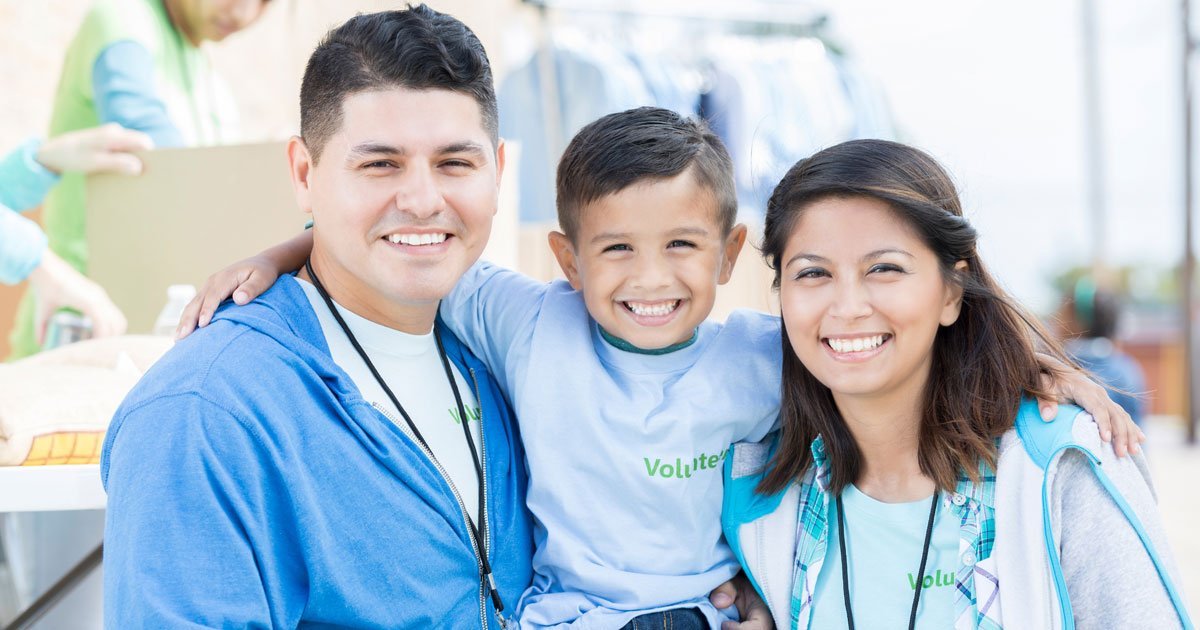","after_title":"","widget_id":"widget-0-0-1"}}" />[/siteorigin_widget]
How to Help Prepare Your Children for an Emergency
Families who involve every member in the preparedness process are more successful at navigating emergencies, so if your family strategy is to have Mom and Dad take care of everything, you are not doing your kids a favor. Emergency preparedness will help your kids learn new skills, accomplish goals, and gain a little independence. Children like to feel grown-up, and involving them will help them prepare not only physically, but mentally as well. That means if your family ever does experience a natural disaster or other unforeseen disruptive event it will be much less frightening and traumatic for them. With all this in mind, let's take a look at a few things you can do to help prepare your children for an emergency.
1. Evacuation trial runs
Sitting down as a family to go over a specific evacuation plan is not enough. You have to put it in action. Only by having regular evacuation rehearsals will you identify holes in your preparedness strategy (for example, remembering the cell phone but forgetting the charger for it.)Evacuation practice makes a great family activity. Sit down with your kids ahead of time and give everyone a job. For example: “Sally is in charge of helping James with his shoes,” and “Barry will carry the 72-hour kits to the car.” Then set the timer and see how quickly you can load up the car. It's great fun, like a race. And since everyone is in the car anyway, why not round off the evening with a scoop of ice cream?
2. Go Camping
The very best way to Replace out how you will function in a “bug out” scenario is to go camping and test out your 72-hour kit. This does not have to be overnight camping. You can pack up a tent and other supplies and enjoy nature for the afternoon and it will serve the intended purpose.
This exercise is beneficial for more than just the kids. It's also great for adults who haven’t spent much time camping (I'm speaking for myself, here), thereby providing an excuse to learn things like proper pocketknife use, how to build a fire, preparing food over that fire, how to construct a simple shelter, and what to do when you are lost. Even if you, the adult, have read all about these things, there's nothing quite like putting it into real, live practice, and trying it out for yourself.
3. Hiking
Another great way to help prepare your children for an emergency is to get up and go hiking. If you live in an urban area, walks around the city count. The idea is to get kids used to covering long distances by foot. But there's no substitute for hiking a unpaved trail through the mountains, with uneven ground and varying degrees of incline. My children both beg to go hiking and also complain about being too tired after going 200 yards, but that's part of the experience. We've tried to do a lot of hiking this year, so my 4-year-old doesn't complain quite as much now as she used to.
4. Maintenance of Your 72-hour kits
This is always a huge project at my house since I have a big family. It almost always involves unpacking everything, sorting every item individually to see if it has expired or degraded, purchasing additional or replacement items, and packing everything up again.
Why not get the kids to help?
Show them where to Replace expiration dates on packaged goods and make them do the repacking. Some families include candy in their emergency kits specifically for this purpose; every time the kits need to be updated, the children get to eat the candy in their kits. Everyone should be familiar with his or her own kit – know what's in there and where to Replace the items in each pocket. Let children pick out items for their kits. When choices based on color or flavor arise, let them choose. This will engender a feeling of ownership for their own kits.
5. Invite Questions and Encourage Discussion
It's safe to say that for many families, emergency preparedness isn't just a quirky thing they do, it's part of a broader family culture of prudence and self-reliance. Not all families have several hundred pounds of wheat stashed in the recess under the stairs, and if your family does, tell your children why. Let them know why emergency preparedness is important to you.
It might be as simple as telling a story. “We have food storage in our family because back in the '80s Grandpa lost his job and food storage pulled us through.” Or, “Aunt Sylvia wished she had had a 72-hour kit when she had to evacuate the wild fires a couple of years ago.” Or even, “Sometimes we get hurricanes where we live, so we decided these emergency kits would be smart things to have.”
In response to this discussion, your children may surprise you by coming up with their own ideas for enhancing your family's preparedness strategy.
If you are not already involving your children in your emergency preparedness, it's never too late to start. If you don't yet have 72-hour kits, start today to put them together. If you've never gone hiking or camping and have no idea where to start, don't sweat it, just do the best you can. There are a lot of great resources out there that will help, like recreation.gov. When it comes to preparedness, every little bit helps because even a little bit is better than nothing.

